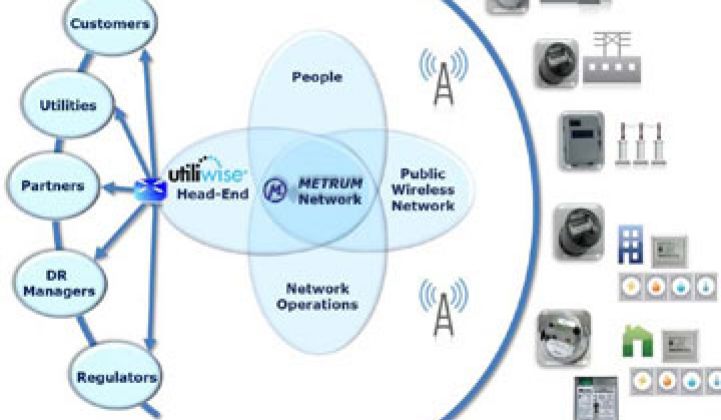Aclara expanded its grid networking solutions by acquiring the assets of Metrum Technologies, a Texas-based company that provides public network communications products for utilities.
Aclara, which is a member of ESCO Technologies’ (NYSE: ESE) utilities solutions group, will add cellular solutions to its communication offerings, which already include powerline and RF mesh.
"Metrum’s communication technologies are an excellent complement to Aclara’s network offering," Brad Kitterman, president of Aclara, said in a statement. "Adding Metrum's portfolio of products to our existing offerings allows Aclara to provide a more comprehensive solution that will enable our existing customers -- as well as new ones -- to optimize the economics of their smart grid deployment by balancing bandwidth requirements with cost."
Metrum’s assets will be integrated into Aclara’s Two-Way Automatic Communications System (TWACS), which is used to transmit data between electric meters and the utility. The acquisition also includes Metrum’s research and development center in Dallas. Dave Steidtmann, director of marketing for Aclara, likened the acquisition to bringing in a FedEx to its already-existing highway network. "We look at it as a surgical overlay," he said.
Aclara’s first deployment of Metrum’s IP-based solutions will be in rural electric and municipal utilities, which have been of increased interest to vendors for the past year or so, as large, investor-owned contracts are fewer and far between.
The addition of a cellular layer will allow for high-bandwidth and low-latency communications according to Aclara. The technology can also be used for distribution automation, demand response, bringing in SCADA data and commercial and industrial precision applications. Aclara already works with more than 500 utilities, more than 300 of which use TWACS, and Metrum also has a solid portfolio of more than 350 utilities in the U.S.
Increasingly, utilities are realizing that there is not one network that can provide all of their needs for everything from metering to distribution automation and backhaul. Cellular has long played a role in utility operations, usually as backhaul, but as the price has become more competitive, it is gaining more interest.
Nearly a year ago, Silver Spring Networks, which had long been a proponent of RF mesh networks, embedded cellular technology into its Gen4 networking technology. Last February, Itron purchased its cellular partner SmartSynch for $100 million. It is becoming increasingly important for networking players to have a cellular option along with mesh or powerline, and also for the different communications platforms to be integrated.
Cellular is increasingly part of the mix in the U.S., but it will likely be dominant in the U.K. and other areas of Europe. British Gas is already committed to a one-million-meter project with Trilliant using Vodafone’s cellular network. Smart grid communications networks in the U.K. could be worth up to $7.5 billion, which will primarily be cellular. In 2012, Ambient made a play to get into the European market by adding Vodafone to its smart grid node.
Aclara was named a top-10 vendor by Greentech Media in 2012, especially for its meter data management and consumer engagement expertise. But the company also has expertise in advanced metering infrastructure, which will be more robust with the addition of cellular -- and which has gone from a nice addition to must-have communications offering.
“Metrum not only significantly enhances our smart grid communications product offerings, but also allows us to broaden our industry-specific AMI expertise to better serve our utility customers,” Vic Richey, ESCO Chairman and Chief Executive Officer, said in a statement.
Terms of the deal were not disclosed.



